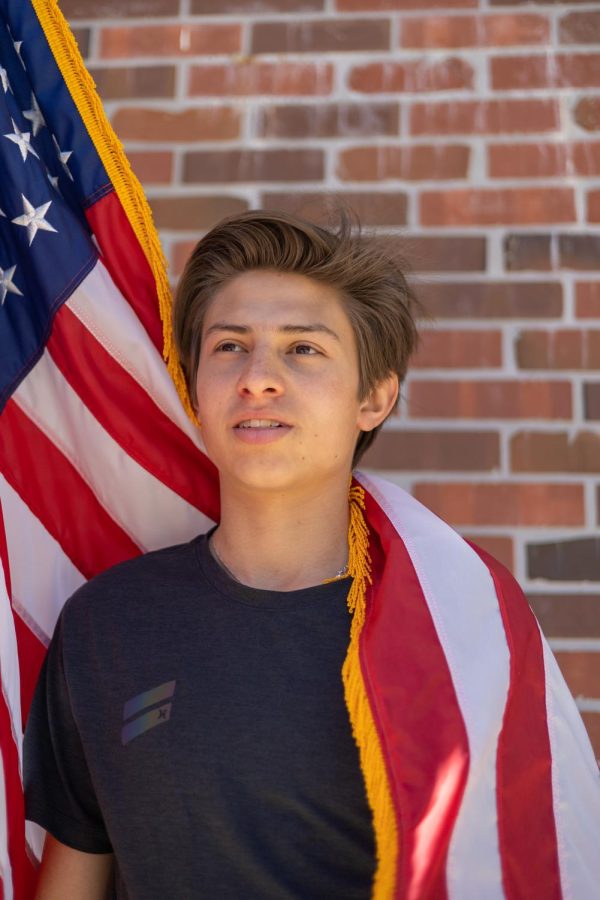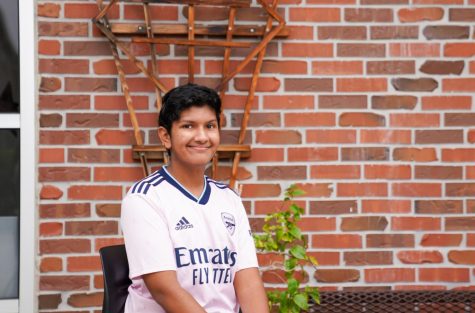Making America home
Exploring how high school immigrants adapt to the United States
Senior Valentino De La Torre who moved to the U.S from Mexico in 2022.
April 22, 2023
In the summer of 1988, school-based therapist Akiko Chung flew halfway across the world from Japan to go to high school in the U.S. Armed only with her student visa and a limited understanding of English, Chung had to adapt to a new country without parental guidance. Over the next three years, she moved between private schools in California, Oklahoma and Tennessee, all while trying to make sense of a culture that was entirely new to her. Despite the many cultural and linguistic barriers she faced, Chung believes she succeeded because of the support from those around her.
“I didn’t speak any English [and] I learned by coming here and being in an immersion classroom, Chung said. “I met amazing friends who were very patient with my English and who really helped me with my education. So on the flip side, because of my lack of skill, there was a lot of support I got.”
Like Chung, freshman Minsi Zong moved to the U.S. on a flight by herself in 2022. After arriving at SFO from Shanghai, Zong met up with her mom and went to Las Vegas, where she found it difficult to make friends due to a lack of Chinese students and stark cultural differences. Moving to Cupertino at the start of 2023 has been a welcome change for Zong, who says it feels more like home.
“In Las Vegas, I feel like I can’t fit in with the majority of people there — less than 10% are Asian — and so I didn’t have a lot of friends,” Zong said. “But when I moved to Cupertino, I felt like it was really like China because some people spoke Chinese and students cared more about studies. I think that was nice.”
Senior Valentino De La Torre, who moved to Cupertino from Zacatecas, Mexico last year, agrees with Zong, finding MVHS to be welcoming but extremely focused on academics, subverting his expectations of attending high school in the U.S.
“I was thinking that [attending] MVHS was going to be everything fun,” De La Torre said. “I thought there would be a lot of parties and [that it would be] crazier than in Mexico, but it is not. In my personal experience, living here is a little bit more boring because they focus on school or work.”
To combat his boredom, De La Torre has become involved in the MVHS community by joining clubs such as the Spanish Honor Society and Basketball Club, attending ELD events and joining the Track and Field team.
Although De La Torre says he has not yet formed strong connections in every activity he has tried, he appreciates the welcoming environment of MVHS. Throughout his time at MVHS, De La Torre says he made new friends and now spends less time on FaceTime calls with his old friends in Zacatecas.
When Chung moved in the late 80s, FaceTime was not an option — in fact, the only way she could communicate with family and friends in Japan was through letters, each taking one week to deliver. Acknowledging that she felt homesick and often cried when reminiscing about home, Chung says she went to others for help — something she recommends to anyone feeling out of place.
“Don’t be afraid to seek out support,” Chung said. “I mean, [asking for help] got me through my journey here, and I think people are often afraid to seek help. I want them to know that it’s OK and everybody’s here to help them to get through anything.”














